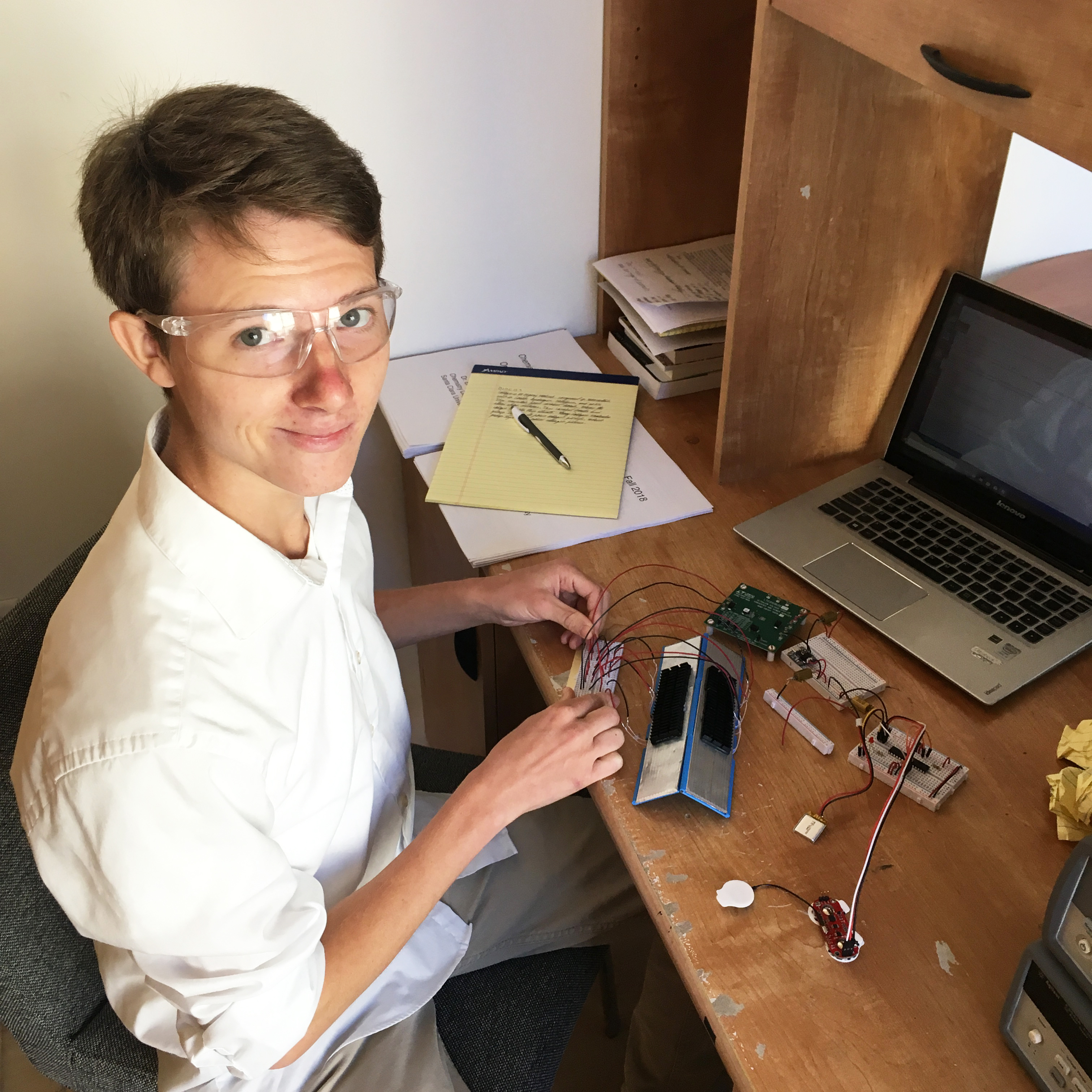Sinking into Summer Research

If you were on campus anytime this summer and happened to walk past SCU’s award-winning 2009 Solar Decathlon house, you may have seen bioengineering rising junior Joshua Vincent diligently working away in a makeshift research area shoehorned into a corner of the sunny living room. Supported by a Kuehler Undergraduate Research Grant, Vincent was paid to assist mechanical engineering Associate Professor Hohyun Lee with his research into harvesting body heat to extend the battery life of prostheses.
Here’s how the self-powered prosthesis works. A thermoelectric module is used to convert body heat to electricity that powers a circuit. The circuit is connected to a microcontroller that actively searches for an input signal from a muscle controller tied to the prosthesis and to a charge controller that distributes power to recharge a battery.
Over the summer, Vincent tested various heat sinks to dissipate excess heat from the unit. “It’s all about how you match up the heat sink with the thermoelectric module,” he said. “What makes a good heat sink is having a lot of surface area for air to flow past. One side of the sink is hot and other is cold; the greater the temperature gap between the two sides, the more power is generated. I’ve been testing to see what different series and parallel connections between the modules generate sufficient power without significant loss.”
After weeks of experimenting and testing, Vincent was encouraged with the results. “We’ve made a breakthrough,” he said. “We tried a new method of laying down pipe that spreads heat evenly, and we put heat sinks on top of the thermoelectric modules. It’s going well and we’re generating enough power to charge the battery and run the microcontroller.”
Quite an accomplishment from a bioengineer! “I’m not a heat transfer engineer or mechanical engineer. I had to learn a lot of stuff on the fly,” he said. “Thankfully I have a background in computer engineering and circuits, so I could program the controller, connect the muscle sensor, and hook up the circuit; and I knew how to read the data sheets for each of the components to build the circuit. Working on my own, under Dr. Lee’s mentorship, I’ve had to be a programmer, circuit designer, prototyper, and test subject lab rat—a jack of all trades!
“Dr. Lee is a fantastic mentor,” he continued. “He was the first person to give me a chance, and he took me seriously from the start. He trusts me with the same level of work he would trust his graduate students. We have weekly meetings, and I’ve learned a lot in our one-on-one time. He looks at the data I’ve collected, we go over my progress reports, and he points out things I didn’t see. It’s nice to be paid to do this research, but I like being on ‘Team Lee.’ I would have done it even without the grant!” Lee shrugs off the compliments and gives credit to his student researcher: “Joshua is extremely self-motivated and driven. His success is a direct result of his personal interest in the project.”